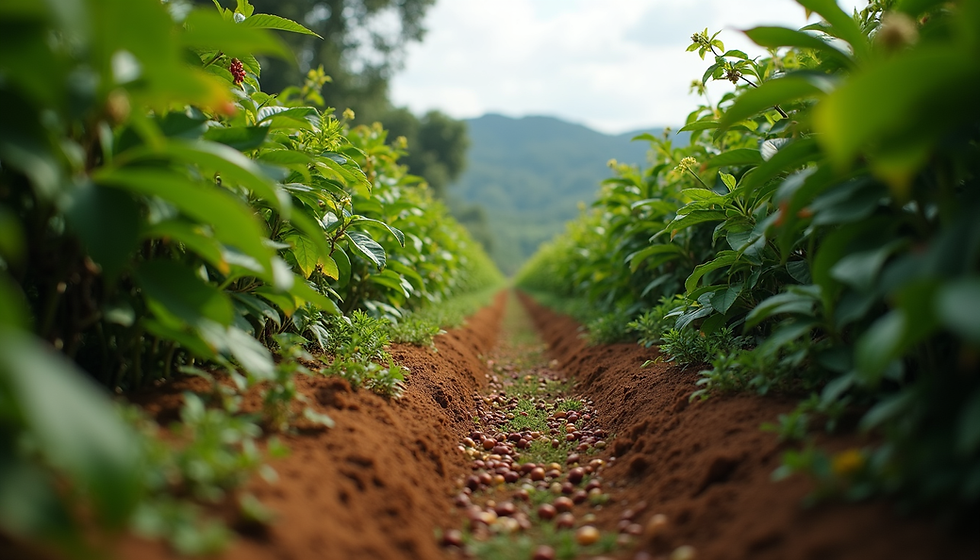How Roasteries Are Adopting Eco-Friendly Practices
- Justin Cornelius
- Apr 23, 2025
- 3 min read
As the global awareness of environmental issues grows, many sectors are stepping up to minimize their ecological footprint. Coffee roasteries are no exception to this trend. The coffee industry, known for its extensive use of resources and significant waste, is undergoing a transformation. Innovative roasteries are stepping into eco-friendliness and are implementing practices that not only benefit the planet but also enhance the quality of the coffee experience.

The Rise of the Eco Roastery
Eco roasteries are businesses dedicated to sustainability, from sourcing coffee beans to packaging products. The commitment to the environment permeates every aspect of their operations. Environmentally conscious roasting involves choosing ethically sourced beans, emphasizing organic certifications, and reducing carbon footprints at every stage.
A prominent example is the use of energy-efficient roasting machines. Traditional roasters can consume significant amounts of energy. In contrast, newer models are designed to use less power, producing lower emissions while maintaining superior flavour profiles. This not only conserves energy but also results in money savings for the roastery.

Sustainable Sourcing Practices
At the heart of eco roasteries is sustainable sourcing. This means prioritizing beans that are grown under conditions that are environmentally friendly and socially responsible. Many eco roasteries form direct relationships with farmers, ensuring they receive fair wages and work in safe conditions.
Coffee grown at higher altitudes often requires less pesticide, making it more sustainable. Additionally, many roasteries are now sourcing coffee from regions that practice agroforestry. This method promotes biodiversity and enhances the environment by integrating coffee plants with other crops and trees.
For consumers, this direct trade often translates into fresher, higher quality coffee. Supporting a fresh coffee roastery not only fosters better environmental practices but also encourages socioeconomic growth in producing communities.
Is Fresh Roasted Coffee Worth It?
The taste of fresh roasted coffee is unparalleled. When coffee is roasted, it undergoes complex chemical reactions that develop its flavours. However, these flavours begin to deteriorate after roasting. Many coffee enthusiasts argue that freshly roasted beans retain more of the aromatic compounds that make a cup of coffee unique.
Moreover, freshly roasted coffee is often found in eco roasteries that prioritize small-batch roasting. This means the beans are carefully monitored and prepared, resulting in a product that is not only tastier but also represents the ethical practices of its origin. The value of fresh roasted coffee goes beyond taste; it extends into the realm of sustainability and community support.

Eco-Friendly Packaging Solutions
Packaging materials are another critical area where eco roasteries are making strides. Traditional coffee packaging often involves single-use plastics that contribute to pollution. In response, eco roasteries are exploring sustainable alternatives like biodegradable bags, recyclable materials, and even compostable packaging.
Innovative solutions include using plant-based plastics that break down naturally without leaving harmful residues. Some roasteries even encourage customers to bring their own containers to refill, further reducing waste. These efforts are not just about cutting costs; they are part of a broader mission to ensure that every part of their operation aligns with sustainable principles.
Community Engagement and Education
Eco roasteries often become community hubs for education and awareness about sustainable practices. Through workshops, tastings, and local partnerships, these enterprises engage with their patrons and share knowledge about the importance of choosing sustainable options—not just in coffee but in all purchasing decisions.
Some roasteries host community events where individuals can learn about the coffee-making process, from bean to cup. These activities foster a connection with the environment and cultivate a sense of responsibility toward sustainable choices. By leveraging community engagement, eco roasteries inspire others to adopt eco-friendly habits both in and out of the coffee shop.

The Future of Coffee Sustainability
As consumer demand for eco-friendly products rises, we can expect more roasteries to adopt sustainable practices. The coffee industry's future will likely hinge on its ability to innovate and adapt. Collaborations between roasters, farmers, and environmental organizations will be essential in creating scalable solutions.
In conclusion, the movement toward eco-friendly practices in the coffee industry reflects a significant shift in consumer values. As more people learn about the impact of their purchasing decisions, eco roasteries will continue to lead the way in sustainability. By prioritizing eco-friendly practices, these roasteries are not only creating delicious coffee but also promoting a healthier planet.
In sum, choosing to support eco roasteries is about more than just enjoying a good cup of coffee. It's about being part of a larger movement towards sustainability and ethical responsibility in the food and beverage sector. Together, consumers and businesses can make a difference—one cup at a time.




Comments